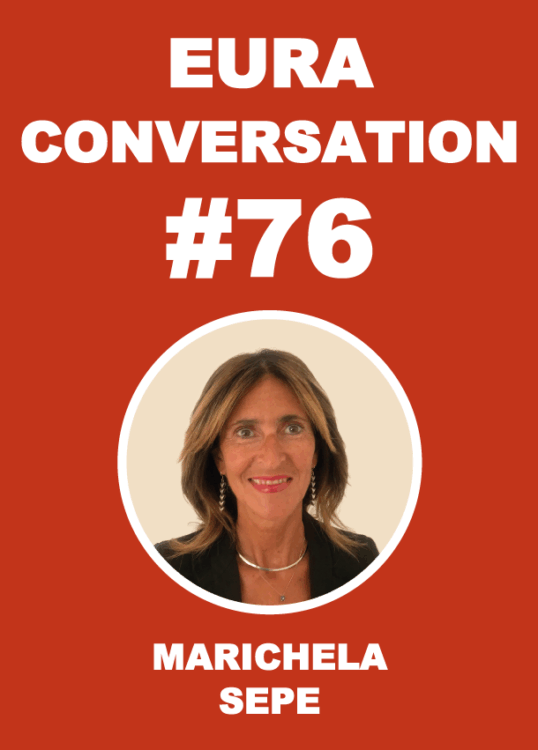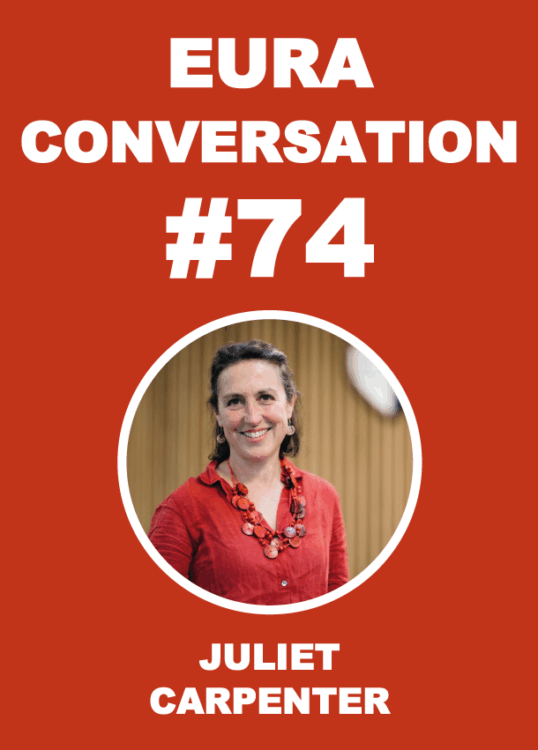
#32 Teaching after Covid: were any lessons learned?
01/11/2021
#34 Meeting places and people
29/11/2021Young people and climate change
EURA Conversations Post #33 – 15 November 2021
by Le Anh Nguyen Long, University of Twente, The Netherlands

I initially intended to write a blogpost about cooperation within and between cities. Alas, my plan to share insights from the resiliency of cross border cooperation during the pandemic will just have to wait because I have another pressing issue on my mind. As I write, government and industry leaders, scientists and activists are convening in Glasgow for the 26th Conference of the Parties to the UN Framework Convention on Climate Change. Since the consequences of the choices made in Glasgow will befall future generations, I have chosen to write about youth perspectives on climate change and the city.
One cannot speak about climate and youth without mentioning Greta Thunberg, who sparked a movement that, pre-Covid 19, filled city streets every Friday with voices, young and old, demanding more concerted action on climate change. But Greta’s activism is just the tip of the iceberg. Three years before she started her school strike, 21 American children sued the US Federal government in Juliana, et al. v. United States of America, et al., for violating the rights of future generations by enabling fossil fuels consumption. Young people like Sara Volz who, at seventeen, developed an algae based alternative to fossil fuels are also putting forward their own solutions.
In sum, young people can be a source of great inspiration, hope, and reason. I write this having recently read forty blogposts written by second year bachelor students (ages 19 and 20) about climate change and the city.
The blogposts, which discussed diverse topics (e.g. housing, heatwaves, and mobility), shared common features that I try to distil here:
First, all of the blogposts root the problem of climate change in human behavior. They describe the consequences of these behaviors for cities and their neighbors. In some blogs, the writer reflects on how the consequences of unsustainable behaviors (e.g. air pollution) are likely to disproportionately impact already marginalized urban residents. They remind us that people experience the city in different ways.
Second, the blogs didn’t simply dwell on problems, they also explore solutions. Some solutions emphasized the opportunities offered by technological innovations, while others propose a change in mindset, for instance through degrowth. While the solutions described in the different blogs varied, they all call for more experimentation in city making as suggested by Filipe Teles (EURA Conversation 3).
Finally, the blogs emphasize that fundamental transformation is made possible by a city’s interconnectedness. Many cities are designed to foster relationships. They note that the mutual aide observed during the pandemic (see, for example, Paula Russell in EURA Conversation 7) leverages social infrastructures established before the pandemic, which must be nourished if cities are to weather impending climate challenges. The emotional connection that people forge with urban places, as explained by Robin Hambleton (link to EURA Conversation 11), can power much needed collective action around climate change.
Covid-19 has been described as a test run for climate change. This brings to mind lesson learning. As Ignazio Vinci suggests (in EURA Conversation 30) insights and new imaginaries that emerged during this present crisis will be invaluable as cities confront their post-pandemic futures. Different perspectives can lead to better learning and solutions in cities.
In the next contribution to EURA Conversations Valeria Fedeli, Politecnico di Milano, discusses how academic conferences in the urban field can restart with renewed energy and interesting ideas after the pandemic.






